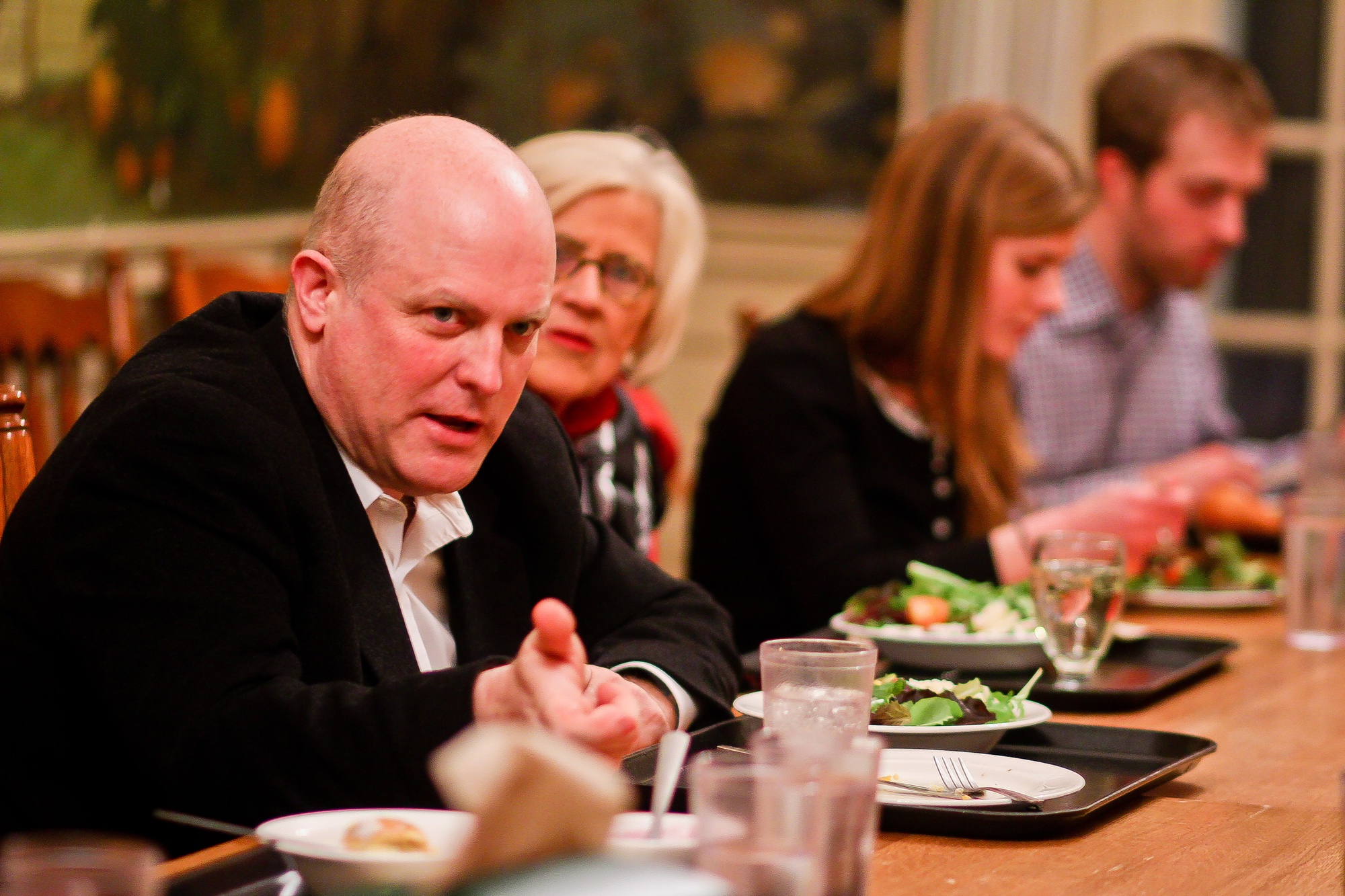
News
Summers Will Not Finish Semester of Teaching as Harvard Investigates Epstein Ties

News
Harvard College Students Report Favoring Divestment from Israel in HUA Survey

News
‘He Should Resign’: Harvard Undergrads Take Hard Line Against Summers Over Epstein Scandal

News
Harvard To Launch New Investigation Into Epstein’s Ties to Summers, Other University Affiliates

News
Harvard Students To Vote on Divestment From Israel in Inaugural HUA Election Survey
Professor Discusses the Challenges of Policy-Making and Climate Change


Students, resident scholars, and House Masters alike gathered Tuesday evening for a Lowell Masters’ Dinner to discuss climate change and policy-making with renowned environmental science and engineering professor, Daniel P. Schrag.
Schrag, who has researched environmental topics such as climate change and currently serves on President Obama's Council of Advisors on Science and Technology, began the discussion by explaining the complexity of climate change’s long timescale, and society’s current desire for immediate satisfaction in regards to climate change policies.
“Nothing we do in the next 30 years is going to materialize within the next 30 years,” Schrag told those gathered in Lowell’s small dining room.
He added that trying to deal with climate change poses the “worst collective action problem the world has ever seen,” since not one, but all, countries must commit to decreasing carbon use and emissions.
Part of the solution, Schrag argued, is to electrify as much technology as possible, including cars and trucks, in order to minimize carbon usage and emissions. However, Schrag said that this will be be a long transition, thus we will not see the benefits of our actions for many years.
When asked about the usefulness of international negotiations and agreements for promoting caps on fossil fuel emissions, Schrag responded that getting rid of the fossil fuel industries will be extremely difficult given the trillions of dollars of infrastructure already set in place. Instead, Schrag said that people will only stop using coal and other non-renewable sources when other forms of energy become cheaper and more accessible.
What proved most surprising to several attendees of the Masters’ Dinner was Schrag’s position on the Keystone XL Pipeline.
“This pipeline has become widely inflated in its political value,” Schrag told those gathered in the room, arguing that environmentalists should focus on more long-term solutions to climate change.
Davida Fernandez-Barkan, a Lowell House tutor and member of the house programming committee who has taken Schrag’s Climate-Energy Challenge course, said she was “really surprised to hear him say that he was in support of the pipeline,” given his previous work. Fernandez-Barkan added, however, that she understood that “he took a much more political view of the situation.”
Some guests were also surprised by Schrag’s analysis of the long timescale involved in addressing climate change. Lowell House tutor and doctoral student in the economics department, Eli B. Schachar, said that while he appreciated Schrag’s engaging discussion, he questioned the possible implications of a long-term view in addressing climate change.
“Is our feeling supposed to be ‘this problem is really hard and going to take a long time’ and feel hopeless, or ‘this problem is really hard and going to take a long time’ and let’s talk about some very concrete short-term goals that can help?,” Schachar asked.
“That’s just to me a more optimistic view of addressing a more complicated issue.”
—Staff writer Kristina D. Lorch can be reached at klorch@college.harvard.edu.
Want to keep up with breaking news? Subscribe to our email newsletter.
